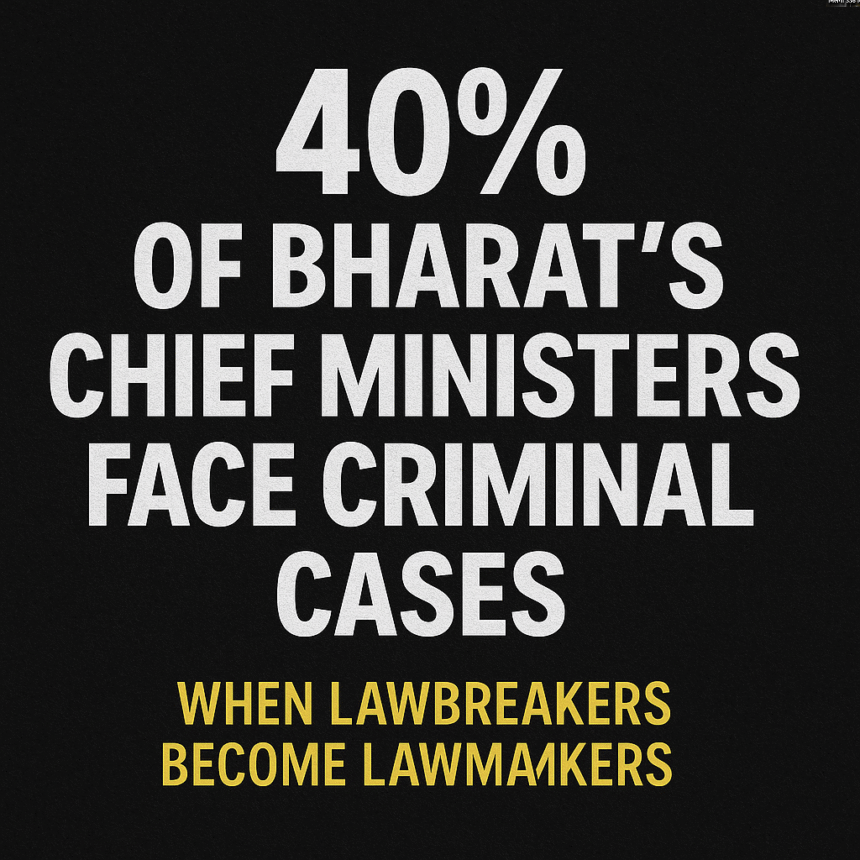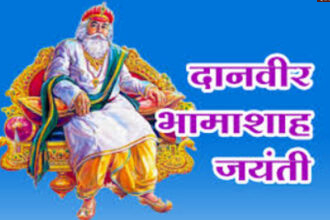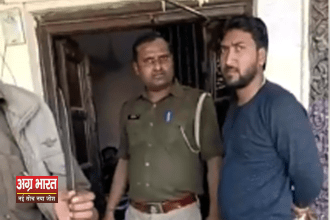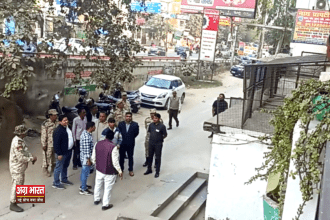It is one of democracy’s cruel ironies that those entrusted to make the law are often those who have themselves been accused of breaking it. The latest report by the Association for Democratic Reforms (ADR) paints a picture of Bharat’s political leadership that is both sobering and alarming: 40 percent of our sitting Chief Ministers face criminal cases. Even more troubling, one-third are booked under what are classified as serious charges- attempt to murder, bribery, kidnapping, intimidation, and even crimes against women.
Take Telangana’s Chief Minister Revanth Reddy. His affidavit lists 89 criminal cases. That number is staggering, not just in comparison to his peers but in what it suggests about the ease with which those with long rap sheets can still occupy the highest executive office of a state. Tamil Nadu’s M.K. Stalin follows with 47 cases, Andhra Pradesh’s N. Chandrababu Naidu with 19, Karnataka’s Siddaramaiah with 13, and Jharkhand’s Hemant Soren with 5. These are not whispers or allegations dug out by rivals; they are self-declared under oath in the election process.
To be clear, declaration does not mean guilt. Our law presumes innocence until proven otherwise. Many cases could indeed be politically motivated-filed by rivals in the cutthroat arena of state politics. But this does not explain away the deeper malaise: why do parties continue to field candidates with such heavy legal baggage? Why do voters continue to elect them?
Part of the answer lies in the culture of delay that defines our judicial system. Trials drag for years, sometimes decades. Chargesheets meander through labyrinthine courts, adjourned time and again. For the average citizen, justice delayed is justice denied; for a politician, justice delayed is a ticket to power.
Then there is the cold political calculus. Parties value “winnability” above all else. If a candidate; no matter how tainted, can mobilise caste loyalties, muscle power, or money, then they are too valuable to discard. The system rewards power, not probity.
And what about us, the voters? Too often we look away. We rationalise: “all politicians are corrupt anyway,” or “better a strong leader with cases than a weak one without.” Sometimes, the lure of freebies or loyalty to caste and community outweighs any concern about criminal antecedents. We are complicit in normalising the abnormal.
The larger tragedy is institutional. When lawbreakers turn lawmakers, accountability takes a back seat. Police forces hesitate to pursue cases against their political masters. Bureaucrats learn to bend. The line between public office and personal interest blurs dangerously.
So, what is to be done? Some reforms are obvious and urgent:
-
Fast-track courts for cases involving elected representatives.
-
Disqualification from contesting elections for those facing serious charges, at least until acquitted.
-
Greater transparency and public pressure through consistent media reporting and citizen awareness.
None of this is easy, of course. The political class is unlikely to reform itself out of power. But democracy is not merely about elections; it is also about vigilance. Citizens, civil society, and a free press must force the issue, lest democracy itself corrode from within.
A nation cannot thrive if its thrones are occupied by men and women who treat the courtroom as their second office. If lawbreakers continue to be lawmakers, then the law itself risks becoming a tool of convenience rather than a shield of justice.
The question, then, is stark: Do we want leaders with rap sheets to write our laws, or are we ready, finally, to demand better?





